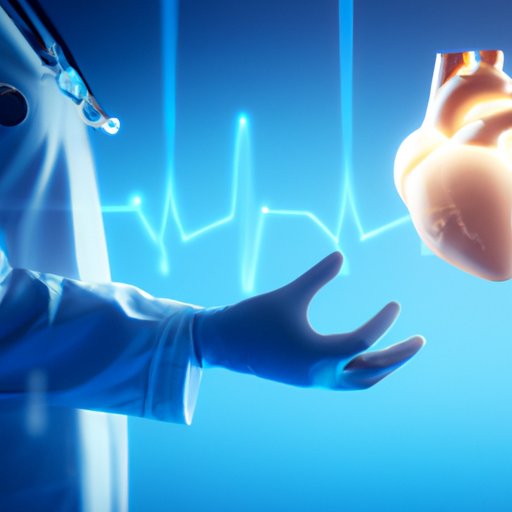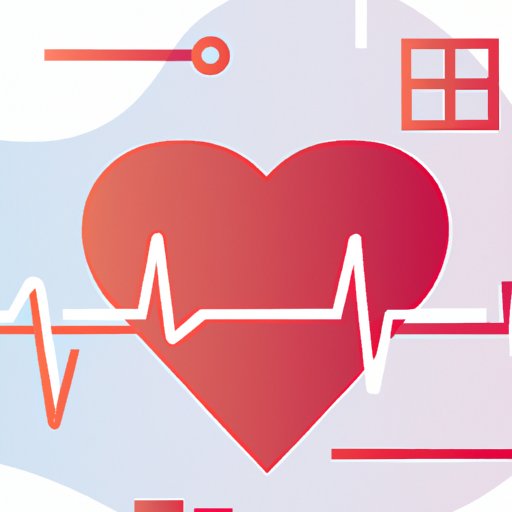Introduction
Artificial intelligence (AI) is a rapidly growing field with many potential applications in the medical industry. In cardiology, AI is being used to diagnose and treat heart diseases more accurately and efficiently than ever before. This article will explore what AI can offer in cardiology, from its potential to revolutionize cardiac care and improve patient outcomes to predictions for the future of AI in this field.
AI and Its Role in Advancing Cardiac Care
AI technology has the potential to significantly change the way we diagnose and treat heart diseases. By using algorithms to analyze large datasets of patient data, AI can detect patterns and identify potential problems that may have otherwise gone unnoticed. This could lead to earlier diagnosis, which in turn could improve patient outcomes. AI can also be used to develop personalized treatments for each individual patient, tailored to their specific needs.
In addition, AI can be used to monitor patient health data in real time. This could enable doctors to quickly detect changes in a patient’s condition and take appropriate action to prevent further complications. AI could also be used to reduce the amount of time it takes to diagnose a patient’s condition, which could save both time and money.

Using AI to Improve Patient Outcomes in Cardiac Care
Current research suggests that AI is already having a positive impact on patient outcomes. AI-based systems are being developed to help doctors better understand and diagnose patients with heart conditions. AI is also being used to predict the risk of heart attack or stroke in patients with existing heart conditions. This could help doctors make more informed decisions about treatment plans for their patients.
AI is also being explored as a tool for improving patient engagement and monitoring. AI-based systems can be used to remind patients to take their medications or to follow up with their doctors if necessary. These systems can also help patients track their own health data, allowing them to make more informed decisions about their own health.
What Does the Future Hold for AI in Cardiology?
The future of AI in cardiology looks promising. AI-based systems are continuing to evolve and become more powerful, which means they can be used to diagnose and treat a wider range of conditions. AI could also be used to provide personalized treatments to patients based on their individual needs. Additionally, AI could be used to reduce the amount of time it takes to diagnose a patient’s condition, which could ultimately lead to better patient outcomes.
However, there are also potential challenges that may arise as AI becomes more widely used in cardiology. For example, AI-based systems could lead to overdiagnosis and overtreatment, which could result in unnecessary costs and risks for patients. Additionally, AI-based systems must be carefully monitored to ensure they are making accurate diagnoses and providing the best possible care to patients.
Conclusion
AI has the potential to revolutionize the way we diagnose and treat heart diseases. By using AI-based systems to analyze large datasets of patient data, AI can detect patterns and identify potential problems that may have otherwise gone unnoticed. AI can also be used to develop personalized treatments for each individual patient, tailored to their specific needs. Finally, AI can be used to monitor patient health data in real time, helping doctors quickly detect changes in a patient’s condition and take appropriate action.
The future of AI in cardiology looks promising, but there are still potential challenges that need to be addressed. However, with careful consideration and monitoring, AI could be an invaluable tool for improving patient outcomes in cardiac care.
(Note: Is this article not meeting your expectations? Do you have knowledge or insights to share? Unlock new opportunities and expand your reach by joining our authors team. Click Registration to join us and share your expertise with our readers.)
